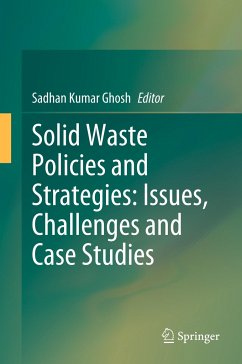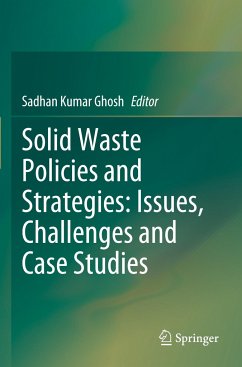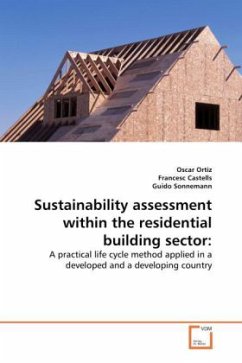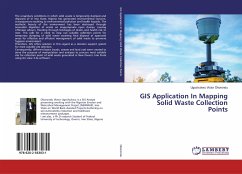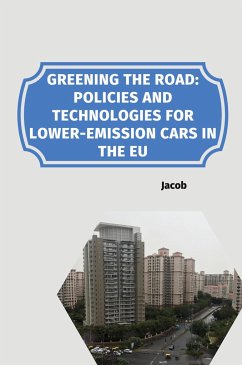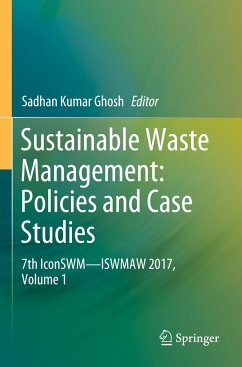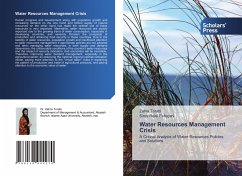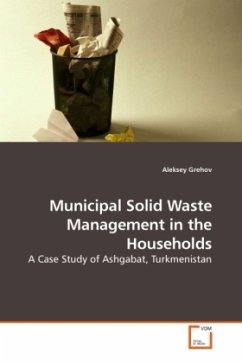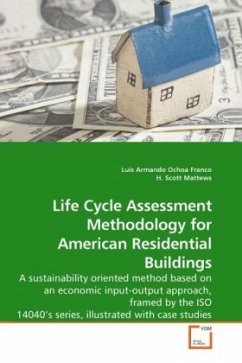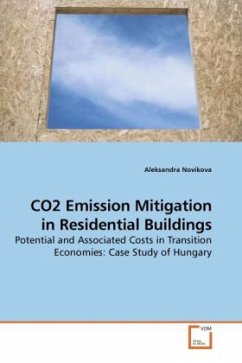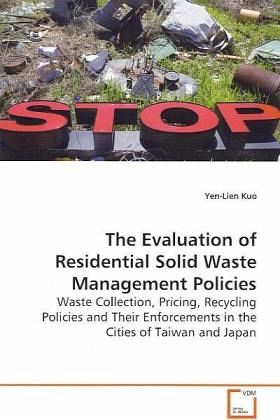
The Evaluation of Residential Solid Waste Management Policies
Waste Collection, Pricing, Recycling Policies and Their Enforcements in the Cities of Taiwan and Japan
Versandkostenfrei!
Versandfertig in 6-10 Tagen
32,99 €
inkl. MwSt.

PAYBACK Punkte
16 °P sammeln!
Most large cities have waste crises, and the majorityof municipal solid waste (MSW) comes from residentsrather than businesses. The introduction of aunit-pricing policy in Taipei decreased residentialsolid waste (RSW) by 33% and almost doubled therecycling in the first two years. Most communitiesincluding Taipei use a mixed RSW policy. This workevaluates RSW policies. It differs from previousstudies because of the following reasons. Firstly,the disposal option of waste storing or composting isconsidered in the household behavior model. Secondly,the waste collection characteristics and theireff...
Most large cities have waste crises, and the majority
of municipal solid waste (MSW) comes from residents
rather than businesses. The introduction of a
unit-pricing policy in Taipei decreased residential
solid waste (RSW) by 33% and almost doubled the
recycling in the first two years. Most communities
including Taipei use a mixed RSW policy. This work
evaluates RSW policies. It differs from previous
studies because of the following reasons. Firstly,
the disposal option of waste storing or composting is
considered in the household behavior model. Secondly,
the waste collection characteristics and their
effects on enforcing pricing and recycling policies
are evaluated by empirical data. Thirdly, the
prosecution and inspection efforts to illegal dumping
are also evaluated. This book comprises a
comprehensive literature review on MSW policies, a
revised household waste disposal model, two empirical
studies on policies in the cities of Taiwan and
Japan, and policy simulations for unit-pricing and
enforcement policies. This is an excellent reference
for readers who are interested in the household waste
disposal behavior and try to design a comprehensive
RSW management policy.
of municipal solid waste (MSW) comes from residents
rather than businesses. The introduction of a
unit-pricing policy in Taipei decreased residential
solid waste (RSW) by 33% and almost doubled the
recycling in the first two years. Most communities
including Taipei use a mixed RSW policy. This work
evaluates RSW policies. It differs from previous
studies because of the following reasons. Firstly,
the disposal option of waste storing or composting is
considered in the household behavior model. Secondly,
the waste collection characteristics and their
effects on enforcing pricing and recycling policies
are evaluated by empirical data. Thirdly, the
prosecution and inspection efforts to illegal dumping
are also evaluated. This book comprises a
comprehensive literature review on MSW policies, a
revised household waste disposal model, two empirical
studies on policies in the cities of Taiwan and
Japan, and policy simulations for unit-pricing and
enforcement policies. This is an excellent reference
for readers who are interested in the household waste
disposal behavior and try to design a comprehensive
RSW management policy.



